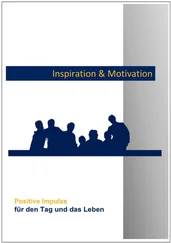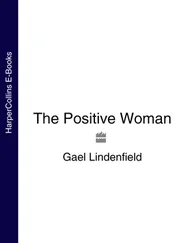Massimo Agnolettigraduated in general and experimental psychology at the University of Padua (Italy) and received his PhD at the University of Verona (Italy) where he is a research assistant. His experience is internationally based (Massachusetts Institute of Technology, University of California, Berkeley, Massachusetts General Hospital, Osaka University, University College of London, etc.) and his main scientific focus is on flow experiences, time perspective, psychological aspects in telomeres, and vagus nerve activation.
C. Daniel Batsonis an experimental social psychologist. He is currently a Professor Emeritus of Psychology at the University of Kansas. His extensive research on the empathy‐altruism hypothesis is reviewed in Altruism in Humans (2011) and A Scientific Search for Altruism (2019). He is also the author of What’s Wrong with Morality? A Social‐Psychological Perspective (2016).
Celina Benavides, is an Assistant Professor in the Child & Family Studies Department at California State University, Los Angeles. She earned a PhD in developmental psychology at Claremont Graduate University, an MA in human development and psychology at Harvard, and an MA in education and mathematics credential at Whittier College. She conducts research in two related topic areas: the educational experiences and outcomes of students of color, and the role of schools and communities in supporting the positive development of adolescents and young adults, namely through civic engagement initiatives and fostering purpose.
Ilona Boniwellis one of the European leaders in positive psychology, having founded and headed the first master’s degree in applied positive psychology (MAPP) in Europe at the University of East London. She heads the International MSc in Applied Positive Psychology (I‐MAPP) at Anglia Ruskin University, teaches positive management at l’Ecole Centrale Paris and HEC, and consults around the world as a director of Positran. She founded and was the first chair of the European Network of Positive Psychology (ENPP), organized the first European Congress of Positive Psychology in June 2002 (Winchester), and was the first vice‐chair of the International Positive Psychology Association (IPPA). She is now the vice‐president for the Francophone Association of Positive Psychology, serves on the board of directors of the International Positive Education Network (IPEN) and is a coeditor of the Applied Positive Psychology Journal . She is well‐published and author of Positive Psychology in a Nutshell (2006, 2016); coauthor of The Happiness Equation (2008), Positive Psychology: Theory, Research and Applications (2011, 2019), Well‐Being Lessons for Secondary Schools (2012); coeditor of The Oxford Handbook of Happiness (2013); and coauthor of Motivated Adolescents (2015) and PEPS: Positive Education for Parents and Schools (2018).
Jolanta Burkeis a chartered psychologist (British Psychological Society) and an assistant professor at Maynooth University, Ireland, where she teaches well‐being. Prior to that, she was a master’s program leader in applied positive psychology at the University of East London, and lectured at Trinity Business School, where she developed a series of highly popular lectures about positive cyber psychology. Her latest books are The Ultimate Guide to Implementing Wellbeing Programmes for School and Positive Psychology and School Leadership: The New Science of Positive Educational Leadership . For her work on well‐being, she was acknowledged by the Irish Times as one of 30 people in Ireland who make it a better place.
Gian Vittorio Caprarais Professor Emeritus at Sapienza University of Rome where he served as chair of the Department of Psychology and dean of the Psychology Faculty. He has been president of the European Association of Personality and is a member of the Academia Europaea. He is author and coauthor of over 500 scientific publications, including several volumes, among which: Personality: Determinants, Dynamics and Potentials (with D. Cervone, 2000); Personalizing Politics and Realizing Democracy (with M. Vecchione, 2017). His research has addressed several topics across personality psychology, social psychology and political psychology.
Mihaly Csikszentmihalyireceived his PhD in psychology from the University of Chicago, where he taught for 30 years and served as chair of the Department of Psychology. He is Professor Emeritus of Psychology at Claremont Graduate University, where he founded and codirected the Quality of Life Research Center (QLRC). He is the author of Beyond Boredom and Anxiety: Experiencing Flow in Work and Play (1975), Flow: The Psychology of Optimal Experience (1990), and Creativity: Flow and the Psychology of Discovery and Invention (1996). A wide range of his work was reprinted in the 2014 three‐volume set, The Collected Works of Mihaly Csikszentmihalyi .
Ed Dieneris a Professor at the University of Utah and the University of Virginia, a distinguished emeritus professor at the University of Illinois, and senior scientist for the Gallup Organization. He is one of the most eminent research psychologists in the world. With over 400 publications and a citation count over 230,000, he is one of the most highly cited scientists in the world. He has been the president of three scientific societies and the editor of three scientific journals, including being a cofounder of the Journal of Happiness Studies . He was the founding president of the International Positive Psychology Association. He has received major awards in psychology including the Distinguished Scientific Achievement Awards from the American Psychological Association.
Scott I. Donaldsonis a postdoctoral scholar in evaluation, statistics, and measurement at the University of California, San Diego School of Medicine, Moores Cancer Center. Scott received his PhD in psychology with a concentration in evaluation and applied research methods and a co‐concentration in positive organizational psychology from Claremont Graduate University. He received his BA in psychology from the University of California, Los Angeles, and his MS in organizational psychology from the University of Southern California. His research focuses on the design and evaluation of behavioral health interventions at work.
Stewart I. Donaldsonis Dstinguished University Professor and executive director of the Claremont Evaluation Center at Claremont Graduate University. He is a cofounder of the first PhD and research‐focused master’s programs in positive psychology at Claremont Graduate University. He currently teaches, mentors, and employs numerous students specializing in positive organizational psychology, positive health and sports psychology, and evaluation science. He serves on the Council of Advisors for the International Positive Psychology Association (IPPA) and was chair of IPPA’s World Congress of Positive Psychology in Los Angeles (2013). He has published numerous articles, chapters, and books on the science of positive psychology, including his latest book Positive Psychological Science: Improving Everyday Life, Well‐Being, Work, Education, and Societies Across the Globe (2020) .
Sandro Formicateaches Managing Self, Others and Positive Organizations in Hospitality at Florida International University and The Economics of Happiness in selected European universities. His book, “ Personal Empowerment: Empower the Leader within You ,” is highly experiential and contains over 200 self‐awareness practices and exercises. He is the academic director of the Chief Happiness Officer in the Hospitality and Services Industries certificate program, granted by WOHASU (World Happiness Summit) and Florida International University. As an academic, he published in international peer‐reviewed journals on human motivational factors and behavioral decision‐making, executive education needs, United States versus Europe training systems, and predictability of human preferences in future global business.
Читать дальше












